|
The other day I was talking with Qassim about what it's like to be Muslim in New York City right now. He said people in his community are scared, depressed, lying low, feeling alone. We talked about the man on Southwest Airlines who was pulled off the plane because a woman heard him say Inshallah and thought it was a terrorist plot. How when a white Christian commits mass murder, it's about his terrible childhood, his disturbed adolescence, bad influences, and when it a Muslim it's because Muslims are just that way. I let him know that I am clear that US wars and CIA maneuvers create young people filled with desperation and rage and weapons. 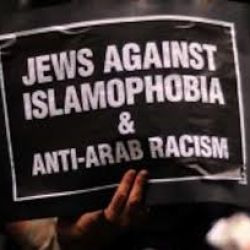 I told him I am a Puerto Rican Jew , a member of Jewish Voice for Peace, and that we're working to get his back and the backs of his people, fighting Islamophobia. We talked about Syrian refugees, about the ill informed bigotry that can''t distinguish between terrorists and their victims. He said he knows the suspicion in people's eyes is rooted in ignorance and sounded sad. I asked him about conditions in Pakistan, and he told me how they flip back and forth between military dictators and democratic elections, how unstable it is. I asked him about the 1947 partition--had it made things better or worse between Muslims and Hindus. Worse, he thinks. He's going back for a visit soon. It takes 20 hours to get there, so he stays for a couple of months when he goes. We were getting close to my destination, so I reminded him that some of us are actively defending Muslims. When it feels like you're alone, I said, remember that you're not. 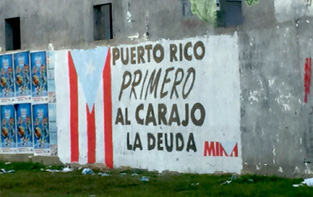 "Puerto Rico first. To hell with the debt." "Puerto Rico first. To hell with the debt." When I met José we talked about colonialism , direct and neo, in the Caribbean, about the armed robbery of so called Third World Debt, how the crisis in Puerto Rico is like having your wallet taken at gunpoint and then the robber lends your money back to you at high interest, and when you said you have to eat, says no, you can't eat, you owe me money. We talked about government corruption, about the Puerto Rican police being the most corrupt and violent under US jurisdiction, about the US invasion of the Dominican Republic, that the planes flew over my house, about privatization, and Latin America under siege, and how, as Caribbean people, we have a hard time with winter and northern individualism. 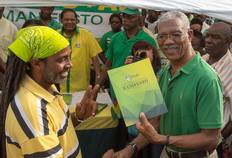 Guyanese opposition coalition. Guyanese opposition coalition. Hemraj is from Guyana. His name means king of gold. He says there are lists of names depending on the day you are born. I tell him the radio in rural Puerto Rico used to read off lists of saints' names for babies born on that day. He tells me about the recent elections which shifted power from the Indo-Guyanese like himself to a coalition led by Afro-Guyanese. To him it's all turmoil and disruption and he doesn't want to go home til things settle down. It makes me curious enough to look it up when I get home. João is critical of Dilma's government although he liked Lula, but says communists are destroying Brazil. Musa is a direct descendant of Mansa Musa, ruler of Mali in the 1300s. He tells me his last name comes from one specific place in Mali and everyone in Mali knows this. 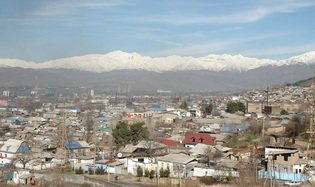 Dushambe, Tajikistan Dushambe, Tajikistan Farrukh is from Tajikistan and I ask about the boundaries between Muslim controlled and Christian controlled regions where Asia and Europe meet, test my knowledge of geography, learn about his home in Dushanbe. A few days later, when I meet a Bokharan Jew, a people rooted for two thousand years in what is now Tajikistan and Uzbekistan, I know where it is, can visualize what he tells me, that at the same time my Ukrainian Ashkenazi people were being evacuated eastward, away from the Nazi invasion of the USSR, his were being sent to the front with the Red Army and junk weapons. I still smile about my conversation with a Black South African Jew, how we were each trying to tell the other about Jews of Color and surprised each other into laughter, how we talked about Palestine and his hometown of Soweto, how I told him I had been part of the anti-Apartheid movement here and we thanked each other, and when our time was up, he embraced me, and called me his sister.
0 Comments
|
About Aurora
Aurora Levins Morales is a disabled and chronically ill, community supported writer, historian, artist and activist. It takes a village to keep her blogs coming. To become part of the village it takes, donate here. Never miss a post!
Click below to add this blog to your favorite RSS reader: Archives
September 2017
Categories
All
|
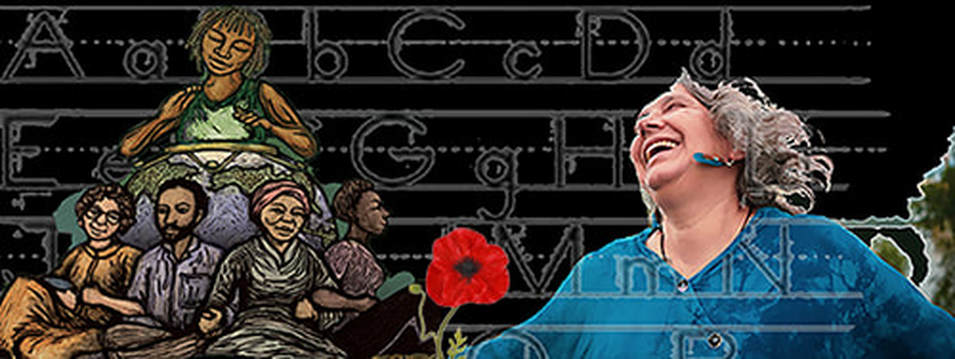
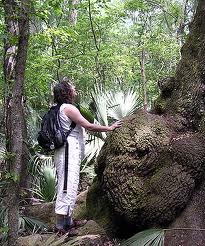
 RSS Feed
RSS Feed
